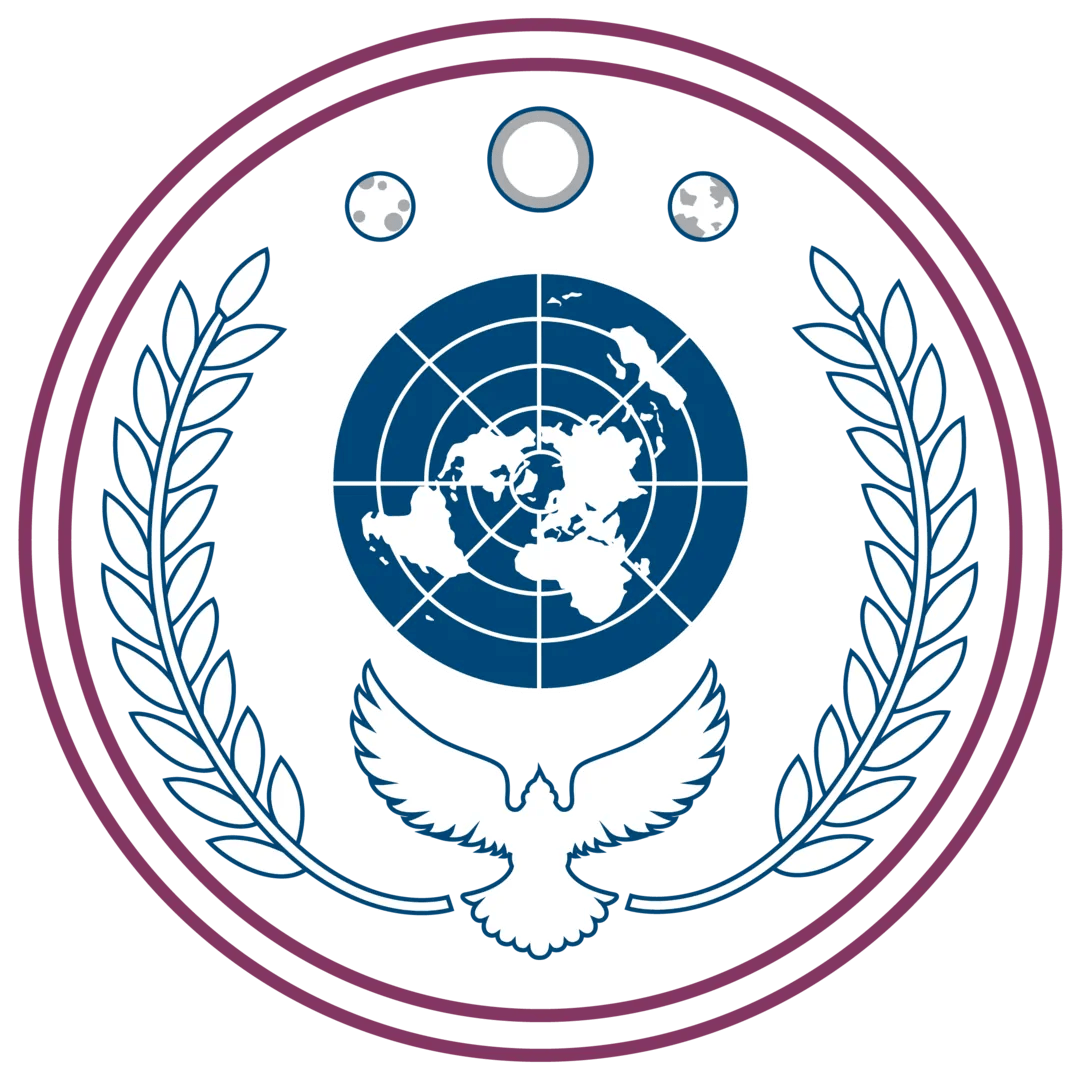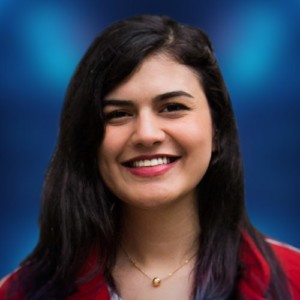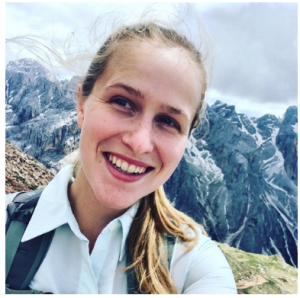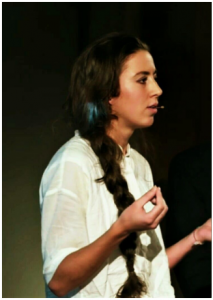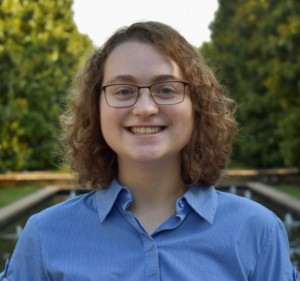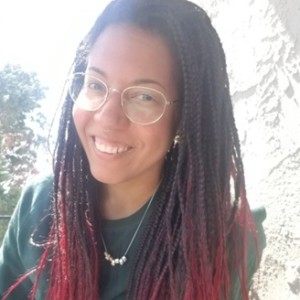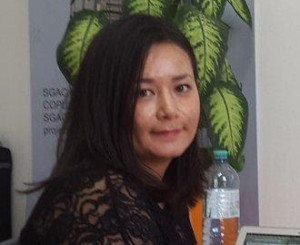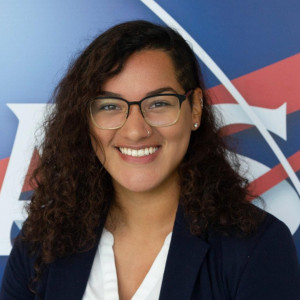We are currently seeking new members! If you are interested in participating in the Project Group, please contact one of the Co-Leads at [email protected] or [email protected].
Co-Leads
AJ Link
AJ Link (he/him) is openly autistic. He received his JD from The George Washington University Law School and his LL.M in Space Law at the University of Mississippi School of Law. He was the inaugural director of The Center for Air and Space Law Task Force on Inclusion, Diversity, and Equity in Aerospace and is an adjunct professor of space law at Howard University School of Law. AJ serves as a research director for the Jus Ad Astra project, the Accessibility Team Lead for AstroAccess, the Space Law and Policy Chair for Black in Astro, and a cofounder of the Palestine Space Institute. He is the founding president of the National Disabled Law Students Association and the National Disabled Legal Professionals Association. AJ also works as a policy analyst for the Autistic Self Advocacy Network and is a fellow at For All Moonkind’s Ethics Institute.
AJ is the chairperson of the board of the JustSpace Alliance as well as the chair of The Potter’s House DC, a nonprofit bookstore. He is also a commissioner on the American Bar Association Commission on Disability Rights. He is the 2020 recipient of the Michael Dillon Cooley Memorial Award, a 2020 inductee of the Susan M. Daniels Disability Mentoring Hall of Fame, and the first ever winner of the Above Space Diversity, Equity, and Inclusion Award.
Sahba El-Shawa
Sahba El-Shawa is a Jordanian-Canadian interdisciplinary researcher originally from Palestine. She is the Founder of the Jordan Space Research Initiative (JSRI), which aims to bridge sustainable development with space exploration and establish an analog research facility in Jordan. Sahba holds several roles in the Space Generation Advisory Council, including National Point of Contact for Jordan, as well as Co-Lead of the Ethics & Human Rights project group and the Space for Climate Action policy working group. She is also a National Coordinator in the Moon Village Association and its Participation of Emerging Space Countries program. She has organized educational outreach competitions for students around the world, and is currently the Environmental Program Coordinator for the Space Science & Engineering Foundation. Sahba holds a BASc in Mechanical Engineering from the University of British Columbia, an MSc in Space Studies from the International Space University, and is now pursuing her PhD in Sustainable Development and Climate Change at IUSS Pavia in Italy. During her studies, she collaborated with the German Aerospace Centre (DLR) on robotics research and completed an internship at the European Space Agency’s Clean Space initiative focusing on the environmental impacts of space activities, both on Earth and in space. Sahba is a vocal advocate for decoupling defense and space. She is committed to creating opportunities for underrepresented communities and helping guide the industry towards a more equitable, ethical, and sustainable future.
Team Members
Adeene Denton (United States of America)
Adeene Denton is a scientist and historian approaching future planetary exploration from a humanistic perspective. She is a Ph.D. student in planetary geology at Purdue University. She holds undergraduate degrees in geophysics and history from Rice University and a Masters in planetary geology from Brown University. Her thesis work focuses on the geologic history of prominent destinations for human and robotic exploration, including the mid-latitudes of Mars and the icy satellites, as the geologic history of these bodies is a crucial aspect controlling resource distribution and accessibility.
As a graduate student, she has been active in developing a support network for underrepresented students both within the Department of Earth, Atmospheric, and Planetary Science at Purdue and across the planetary science community through her work with the Women in Space conference. She is an avid writer, dancer, and choreographer, creating work focused on the sociopolitical implications of space exploration. She can be found on Twitter @spacewhalerider and at adeenedenton.com.
Andrea Owe
Andrea Owe is a space ethicist and independent researcher in future studies based in Norway, who is deeply passionate about the long-term future of terrestrial life on both Earth and beyond. She holds an M.Phil in Development, Environment, and Cultural Change from the University of Oslo, a BA of Fine Arts from The Royal Academy of Art, The Hague, and is looking to pursue a Ph.D. in Future Studies while she runs her research consultancy practice. Her expertise lies within the four main areas of space ethics, ecological ethics, moral enhancement, and AI ethics, which together make up her macro strategic approach to studying the future. Through this approach, she works at the intersection of the socio-environmental crisis, existential risk, human morality, posthumanism, and the prospect of making life multi-planetary.
She collaborates with institutions such as Oxford Future of Humanity Institute, Center for the Study of Bioethics, Effective Altruism, and Global Catastrophic Risk Institute. She is also voluntarily involved in international initiatives aiming to consciously shape our space future, such as the Interplanetary Initiative Space Governance Lab at Arizona State University. By shedding an exploratory light upon the long-term future, Andrea aims to identify, research, and provide novel insights to the macroscale and high-impact issues of our time, improving the long-term prospects for our terrestrial civilization, on Earth and beyond. www.andreaowe.com
Annie Handmer
Annie Handmer is a Ph.D. Candidate at the University of Sydney’s Faculty of Science, in the School of History and Philosophy of Science. She has a Bachelor of Arts (Hons) in Philosophy, with Honours in History and Philosophy of Science, also from the University of Sydney. Annie’s research focuses on science and technology studies and the sociology of science in extreme, multilaterally-governed environments (particularly Antarctica and Space). Annie also tutors an undergraduate subject called ‘Science, Ethics, and Society’ at the University of Sydney.
In addition to her academic studies, she is a member of the History of Science Society, the Space Generation Advisory Council, the Space Industry Association of Australia, the Australia and New Zealand Space Law Interest Group, the Aerospace Futures Committee, the Australian Youth Aerospace Association, and is also the host and creator of the Space Junk Podcast.
Anja Sheppard
Anja Sheppard is a PhD student at the University of Michigan where she is investigating robotic perception for space exploration. She is a National Science Foundation Graduate Fellow, and also holds a B.S. in Computer Science from the University of Texas at Dallas. Anja is very passionate about a encouraging an ethical approach to space exploration by bridging the gap between discourse in humanities spaces to those working on space technologies. She is particularly passionate about creating a sustainable and non-exploitative approach to space infrastructure.
During her time at NASA’s Johnson Space Center, Anja worked on communication software for the International Space Station, on flight software for the Lunar Gateway station, and on the humanoid robotic Valkyrie. She was awarded the NASA Special Achievement Award, the highest honor an intern can receive. Anja has also contributed to research at the Bristol Robotics Laboratory.
Anja is also a committee member in the International Astronautical Federation, and she also contributes to the space policy team at the Space Generation Advisory Council.
Dana Burton
Dana Burton is an anthropology PhD candidate at George Washington University. Her research explores the methodological strategies NASA scientists’ turn to as they search for evidence of life in space. Her ethnographic and archival research followed the ways they imagine, theorize, and evaluate conceptions of life detection, contamination, and the abiotic-biotic threshold in their fieldwork, in conference settings, and in mission planning. Dana’s fieldwork was funded by the Wenner-Gren Foundation and National Science Foundation in 2020 and 2021. Her archival research was conducted as a Society for the History of Technology Fellow funded by NASA and the American Historical Association in 2019-2020. Dana endeavors her work to contribute to a collaborative entanglement between the sciences and social sciences.
Nicole Murayama Nir
Nicole Murayama Nir (she/her) is the Human Resources Manager for Secure World Foundation and a graduate student at DePaul University in Chicago. She is pursuing a master’s degree in Applied Diplomacy with a concentration in Critical Ethnic Studies. She has written about outer space as contested space, space exploration as an opportunity for healing, and ecological justice as social justice.
Nicole graduated from Loyola University in Chicago with a Bachelor of Science in Psychology with a focus on Human Services, and minors in Women and Gender Studies and Music. She participated in the 2019 International Space University Space Studies Program in Strasbourg and was part of the coordinating and editing teams for the Space for Urban Planning Team Project. She supported the Denver Permaculture Guild as the 2018-2019 coordinator, as well as facilitated 20-hour pieces of training for street medics through the Denver Action Medic Network.
Nicole is passionate about collective healing and liberation, permaculture, and community organizing. She envisions a future where humans work in a relationship with the environments they are part of, on Earth, the Moon, and beyond.
https://www.linkedin.com/in/nicolenir/
Chantelle Dubois
Chantelle Dubois is a computer engineer currently located in Montreal, Canada. She has been a long-time member of the SGAC, first as a web team member in 2014, then as a headquarters intern in 2015, until 2018 when she acted as the Manager of the Space Generation Fusion Forum. Her varied experiences with the NGO have been an important element in her personal and professional development, providing her many opportunities to grow, and establishing life-long friendships with like-minded individuals from around the globe. Chantelle has been recognized by the SGAC for her efforts via the Space Generation Leadership Award (2016) and the Space Generation Pioneer Award (2018).
More locally, Chantelle is employed by the Canadian Space Agency. She began her career with the agency first as an intern for the robotics team, supporting software integration and testing for the Lunar Exploration and Analogue Deployment project. She also has had the opportunity to work with the CSA’s policy branch in the area of international affairs and domestic regulation. Following her graduation, she returned to the agency in the Engineering Development Program where she divides her time between directorates to develop a multi-faceted understanding of space agency activities and expertise. Currently, she is assigned with the Lunar Gateway Program and Multi-Mission Satellite Operations, primarily supporting from a software perspective. Chantelle considers her participation in the final selection committee of the Canadian Space Agency 2016-2017 astronaut recruitment campaign to be one of the most memorable experiences of her career so far.
Monica Vidaurri
Monica Vidaurri (she/her) is a student at George Mason University currently working towards a Masters in Biodefense. Her undergraduate degrees are in biology and government and international politics with a concentration in law, philosophy, and governance. Originally from San Antonio, Texas, Monica moved to Washington, D.C. in 2017 to do a semester internship in the United States Senate. That internship turned into various jobs across the government, the non-profit sector, and even a science society.
Monica now works at NASA Goddard Space Flight Center as part of the CRESST II research group, where she is an astrobiologist and policy and ethics specialist. Monica’s astrobiology experiences include observing exoplanets, and exoplanet characterization. Her policy experiences lie in international law, ethics, and space policy. The two fields meet at the intersection of biodefense, bioethics, and planetary protection, which fuels her passions in ensuring humanity adopts proactive, transparent, and ethical standards of space exploration, as well as bridging the gaps between the science world and the policy world. Monica is also a musician and teaches high school and drum corps brass and visual ensembles.
London Vallery
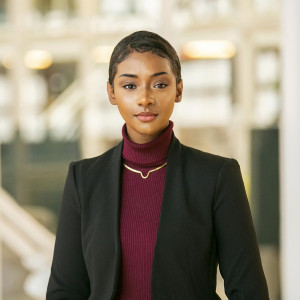
London works as a researcher at the Harvard-Smithsonian Center for Astrophysics on the PredictionX team where she explores celestial predictive systems and technology policy. She is also the director of the docuseries Upward Expansion which covers the ways in which indigenous communities utilize the stars and sky as a natural resource and the technological threats that advance the loss of their generational knowledge. She has engaged in engineering and astronomy research throughout Asia, Africa, and the Americas, and embarked on an expedition to Antarctica to study Antarctic tourism and archaeology through the lens of future space exploration. London is currently completing her thesis research under the Edmond J. Safra Ethics Fellowship with a focus in space ethics and land claim.

